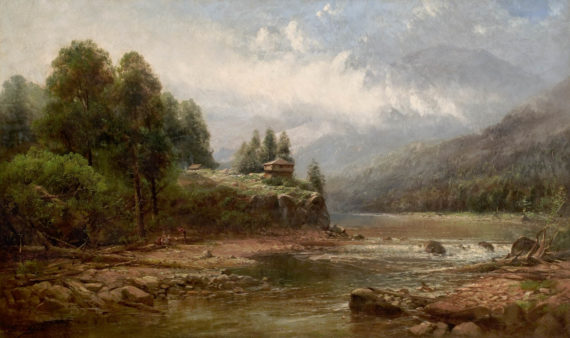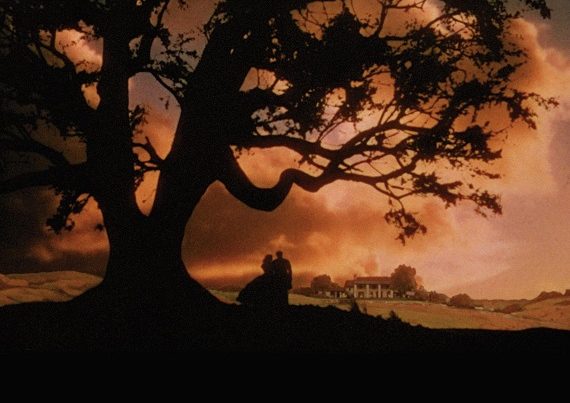There is a venerable American tradition — at least as old as Alexis de Tocqueville — to contrast the energy, ingenuity, and virtue of the North with the slow, backward, hypocrisy of the South. In Tocquevile’s influential work Democracy in America, published in 1831, we read: “The banks of the Ohio River provided the final demonstration…[that] time and again, in general, the colony that had no slaves was more populous and prosperous than the one where slavery was in force.” Slaveholding Kentucky, observed the French intellectual, is where “society has gone to sleep…[where] it is nature that seems active and alive, whereas man is idle.” The neighboring free state Ohio, alternatively, is described as having all “evidence of comfort; man appears rich and contented; he works.”
Far be it from me to question what that great commentator and critic of American society and politics witnessed in his days along the Ohio River — perhaps such distinctions were obvious to the casual observer. But as someone who has spent a sizable chunk of his adult life living overseas in Asia and Latin America, I’m also familiar with the tendency of travelers to make sweeping generalizations about the places they visit, which frequently reveal more about the subject than the object of said commentary. It was the antebellum South, after all, that produced some of America’s greatest military commanders (Washington, Hancock, Lee); statesmen (Jefferson, Madison, Jackson); and writers (Twain, Poe). Yet as with many things, those predisposed to perceive the South as lazy or ignorant will no doubt find ample evidence.
Given this, I was not particularly surprised to find such commentary in Mental Maps of the Founders: How Geographic Imagination Guided America’s Revolutionary Leaders, a new book by Michael Barone, a senior political analyst at the Washington Examiner and resident fellow emeritus at the American Enterprise Institute. Barone approvingly cites one historian who praises the antislavery Northwest Ordinance as attracting “the thrifty Yankee from New England, the enterprising Dutchman from Pennsylvania, the conscientious Quaker from Carolina…” He cites with tacit agreement Washington Post journalist Joel Achenbach, who claims that George Washington, seeing the “industriousness of the Yankees, their rapid adoption of manufacturing, and the cleanliness and bustle of their towns,” could not help but contrast that with the South, a “region of desolate fields, shabby homes, scenes of poverty.” Achenbach writes: “To a degree he couldn’t quite grasp, he had become, over the years, less and less of a southerner.”
According to this common founding mythology, it was yankee enterprise and innovation that made America great, and southern indolence and inflexibility that has held her back. And yet, that’s a bit of an odd narrative to be telling in 2023, at least by conservatives such as Barone. In the last presidential election, for example, your most likely Republican voter was male, white, middle-class, and southern. Without the South, Trump would have won only a handful of states in the midwest and west. The states most commonly cited as preserving a traditional conservative vision — and succeeding politically and fiscally in the process — are Florida and Texas. In other words, the part of the United States most faithfully seeking to retain the principles of the Founding is not the land of “yankee thriftdom” but Ole’ Dixie.
That’s of course not to dismiss the rest of the country as it relates to America’s greatest achievements. Obviously, it is impossible to imagine the United States becoming the most powerful and influential nation of the twentieth century apart from gilded age New York, the industrial power of the states now comprising the Rust Belt, or, of course California, for many decades a paradise representative of American excellence and middle-class prosperity. And, as Barone’s book interestingly explains, it was America’s early southern (Virginian) presidents who appreciated the need for westward expansion across the continent.
Washington, for example, was obsessed with amassing and cultivating lands in the West, both for himself and for the nation. This included thousands of acres in Pennsylvania. “This Tidewater Virginia farmer seemed alert to the possibility that the lands west and northwest of the Fairfax Grant [a huge territory encompassing much of present-day Virginia and West Virginia] would become America’s coal-and-iron industrial heartland,” writes Barone. To accomplish this, Washington envisioned the Potomac River and a parallel canal as the major transportation artery between the Atlantic Coast and the interior of the continent.
Thomas Jefferson in turn, also looked west to the wilderness from his mountain mansion outside Charlottesville, Monticello. “His gaze was constantly directed westward, beyond the most prominent feature on his father’s map, the highest Appalachian ridge, beyond which he never ventured — and on how Americans might penetrate beyond it.” One of his greatest presidential achievements, of course, is the Louisiana Purchase, encompassing 530,000,000 acres that he commissioned the intrepid Meriwhether Lewis and William Clark to explore and study.
James Madison, alternatively, “was already thinking of extending the authority of the United States to the west and south” before the Revolutionary War was even over. For Madison, it would be the Mississippi River that would ensure the success of the fledgling nation, and thus freedom for Americans to navigate it was paramount. Westward expansion was also central to Madison’s republican political vision, as he himself explained: “Extend the sphere and you take in a greater variety of parties and interests; you make it less probable that a majority of the whole wil have a common motive to invade the rights of other citizens.” What was needed was ample land for settlers to farm, resistant to the centralizing tendencies of industrialism and urbanization that fostered a propertyless class easily exploited by a wealthy, powerful elite class.
In 1811, Madison ordered the annexation of West Florida by the governor of Louisiana, making him the only American president to expand the continental United States “not by treaty or declaration of war but by ordering troops to seize it.” That’s a tad ironic, given that many thousands of people, as well as prominent businesses, are now evacuating New York and California — those once lauded paragons of American wealth and vitality — for Florida, Texas, and other parts of Dixie. The future of our nation, Americans every year communicate with their feet, will seemingly be a southern one. Go South, young man.







A good column and very interesting. My personal conclusion after reading numerous works with primary source accounts of the differences between Yankees and Southerners is that alleged Southern laziness was a relative matter. Yankees were obsessed with work and money, and the trappings of wealth/success. Southern culture was pretty much the opposite in the whole. Not all were plantation owners living in mansions like Tara. In fact those plantation owners were very much in the minority. The typical Southerner looked poor compared to Northerners but were actually much better off than appearances would indicate. It was part of the Puritan culture of Yankees which IMO is not something admirable at all. Their religion and peer pressure was to be busy, busy, busy at all times and those that had some free time got busy imposing their ideas on everyone else for things like cleaner cities etc. Yankee ideas lead to the kind of corporate CEOs we have in our times and NGOs running around ‘doing good’ and so on. These are the kind of people who seek global control and unimaginable wealth for themselves at the expense of others and never stop finding someone or thing that needs to be ‘fixed’. Let me say too that I am all for free markets and private property, but too much of anything is almost always a bad thing.
“Let me say too that I am all for free markets and private property…”
So am I. But are they “free” when they are ordered by the government to be free? You can almost bet on it that those Yankee-know-it-alls who are racing down south to get away from themselves will soon vote for candidates who demand I put away my fishing pole and get to work building some public project for the “freedom” of the PEOPLE! Southerners breed dogs and horses. Yankees breed termites. One serves. The other destroys.
LOL Love your writing, Paul. I added what you quoted because I wanted to be sure, just in case, that no one would confuse me with any modern day political party member. I am a firm Jeffersonian – not that we have an actual party. I totally agree that “free” is not that when ordered by any government. A momentary aside: How about those $60,000.00 EV batteries y’all? Are they subsidized by us too?
I am encouraged by some polling that shows that at least in some Southern states the Yankee migrants are actually voting red. I am in total agree with SC’s idea of imposing a Yankee ‘tax’ and not letting them vote for a time. I’d like to see a multi-generation ‘tax’ on them because one thing that history shows us is that Yankees can not be trusted to “Think locally. Act locally” as Dr. McClanahan puts it.
I know and have known Yankees who are more Jeffersonian than Jefferson was. One of my closest friends was (deceased) a Jewish guy from Brooklyn N.Y. He graduated as under graduate V.M.I. and later law school George Washington law school. He could have been Robert E. Lee’s chief of staff. I used to kid him with the admonition that opposites do attract. I (Jackson Mississippi Southern Baptist) and he (Brooklyn, New York Jew) were closest of friends. When I say “Yankees” I mean what Dr. Clyde Wilson means when he refers to the “Yankee problem.” In my view that bunch are no good (starts with and “S” and ends with a “B”)
Hello Paul,
Thank you for this reply in particular. I should have clarified my Yankee reference. I too think of the New England type only when I use the term. I married a Copperhead Northern girl and a more Southern person in mindset and attitude one could not find. So, I apologize to all for my poor writing skills.
Also, thanks for sharing your personal story. I love to read about other people’s experiences. It is one of the things that gives me hope for the long term prospects for the South and indirectly for the country.
“Go South, young man.” No, please don’t. We’ve had quite enough of leftist migrants seeking to escape the consequences of their failed worldview, thank you.
Amen!!